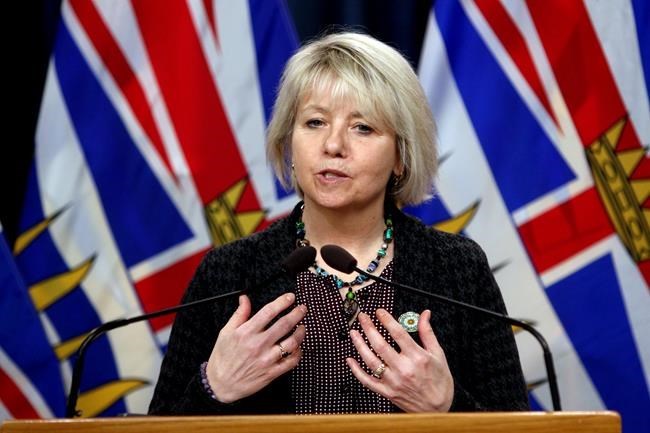VANCOUVER — British Columbia health officials are encouraging residents to get both flu shots and COVID-19 boosters this fall, while patients are being shuffled out of hospitals to make room ahead of possible twin surges of illness. Â
Provincial health officer Dr. Bonnie Henry told a news conference Wednesday the impacts of COVID-19 are expected to be less severe than 2020 or 2021, while influenza will make a comeback.Â
"We've had very little, almost no influenza for the last couple of years. There's a whole cohort of young people who've never been exposed to influenza," she said.Â
Free flu shots will be available through pharmacies and community clinics beginning Oct. 11 for everyone six months and older.Â
Seniors are eligible for enhanced vaccines with added protection, including FluzoneHD for those in long-term care and assisted living facilities and Fluad for those living in the community.Â
Invitations continue to be issued for COVID-19 boosters and Henry encouraged the use of the bivalent vaccines that offer protection against variants including Omicron.
"We have a good level of hybrid immunity right now but all of this decreases in time. The best thing we can do to protect ourselves is to get a booster," she said.Â
Omicron has been the most dominant variant since the COVID-19 pandemic began and is expected to remain so over the next several months, Henry said.Â
COVID-19 hospitalization and death-rate data suggest immunization programs are working, she added.Â
When the Delta variant was dominant, the "vast majority" of people in hospital with positive COVID-19 tests were admitted because of the virus. Now, about half of those with COVID-19 in hospital were admitted for unrelated reasons, Henry said, referring to data released Wednesday.
Similarly, COVID-19 is the cause of death for less than half of people who die in hospital while positive with the virus, she said.Â
Health Minister Adrian Dix said patients who can be moved from hospitals into community care facilities are being identified now to free up beds in case they are needed.Â
Provincial data suggests hospital beds can accommodate 9,400 patients in B.C., a figure that officials said takes into account staffing shortages and other pressures on the system.Â
There are currently about 350 people hospitalized with COVID-19 and modelling suggests up to 700 more might require care in the next surge. Flu cases could take up an additional 1,200 beds during a peak.Â
The province's plan to free up beds includes moving some patients from hospitals into community care and home care. Of those currently in hospital, about 1,300 could be cared for in the community and 500 are awaiting care home placement, officials said during a technical briefing.
An operational task force is also reviewing how to improve emergency department efficiency and access to hospitals.Â
As a last resort, service reductions and surgery cancellations are also possible, officials said.Â
COVID-19 is expected to surge around November through January. Henry said she expects the flu may peak around the same time, based on the experiences of Australia and New Zealand.
This report by The Canadian Press was first published Sept. 28, 2022.
Amy Smart, The Canadian Press


